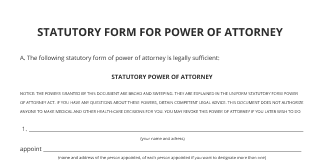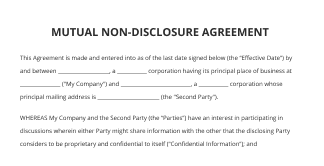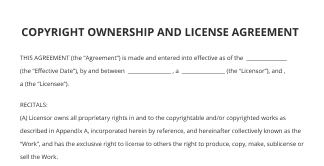What is the Difference between a Quote and an Invoice for Your Business Needs
Move your business forward with the airSlate SignNow eSignature solution
Add your legally binding signature
Integrate via API
Send conditional documents
Share documents via an invite link
Save time with reusable templates
Improve team collaboration
See airSlate SignNow eSignatures in action
Understanding Quotes
A quote is a document that outlines the estimated cost of goods or services that a business intends to provide. It serves as a formal offer to a potential customer, detailing the price and terms of service. Quotes are typically provided before any work begins, allowing clients to understand the financial commitment involved. They can include various elements such as:
- Itemized list of products or services
- Pricing details
- Validity period of the quote
- Terms and conditions
Quotes are often used in industries where pricing can vary based on specific requirements, such as construction, consulting, or custom manufacturing. They help establish transparency and set expectations between the business and the client.
Defining Invoices
An invoice is a document issued by a seller to a buyer, indicating the products or services provided along with the total amount due for payment. Unlike a quote, which is an estimate, an invoice is a request for payment after the goods or services have been delivered. Key components of an invoice include:
- Invoice number
- Date of issue
- Details of goods or services provided
- Total amount due
- Payment terms and due date
Invoices are essential for record-keeping and financial tracking, serving as legal documents that can be used for accounting and tax purposes.
Key Differences Between Quotes and Invoices
The primary difference between a quote and an invoice lies in their purpose and timing. A quote is provided before any work is done, serving as a proposal to the client. In contrast, an invoice is issued after the work is completed, requesting payment for services rendered. Other distinctions include:
- Quotes are estimates; invoices are requests for payment.
- Quotes can be adjusted based on client feedback; invoices are final.
- Quotes may not require payment; invoices typically do.
Understanding these differences is crucial for businesses to manage their financial interactions effectively and maintain clear communication with clients.
When to Use Quotes and Invoices
Knowing when to use a quote versus an invoice can streamline business operations. Quotes should be used when:
- Engaging with potential clients to outline costs
- Negotiating terms before starting a project
- Providing estimates for custom services
Invoices should be utilized when:
- Delivering goods or completing services
- Requesting payment from clients
- Documenting sales for accounting purposes
Using these documents appropriately helps maintain professionalism and clarity in business transactions.
Creating and Managing Quotes and Invoices Digitally
With digital document solutions like airSlate SignNow, creating and managing quotes and invoices becomes efficient and secure. Users can easily prepare and send documents for eSigning, ensuring that all parties have access to the necessary information. Features include:
- Customizable templates for quotes and invoices
- Easy editing and merging of documents
- Secure sharing and storage of completed documents
By leveraging digital tools, businesses can enhance their workflow, reduce errors, and improve client satisfaction.
airSlate SignNow solutions for better efficiency
Our user reviews speak for themselves






Why choose airSlate SignNow
-
Free 7-day trial. Choose the plan you need and try it risk-free.
-
Honest pricing for full-featured plans. airSlate SignNow offers subscription plans with no overages or hidden fees at renewal.
-
Enterprise-grade security. airSlate SignNow helps you comply with global security standards.

What distinguishes a quote from an invoice?
Grasping the distinction between a quote and an invoice is crucial for successful business dealings. A quote offers a price approximation for services or products, whereas an invoice serves as an official demand for payment after the service has been provided or the product has been delivered. This guide will assist you in navigating the use of airSlate SignNow for your document signing requirements.
What distinguishes a quote from an invoice?
- Launch your web browser and go to the airSlate SignNow main page.
- Establish a complimentary trial account or sign in to your current account.
- Choose the document you want to sign or send for signatures by uploading it.
- If you intend to utilize this document again, preserve it as a template for future purposes.
- Open your uploaded document and perform necessary modifications, such as including fillable fields or entering needed information.
- Affix your signature to the document and allocate signature fields for the recipients.
- Click 'Continue' to set up and dispatch an eSignature invitation.
airSlate SignNow provides many advantages, including a strong return on investment owing to its wide range of features relative to its cost. It is developed to be intuitive and scalable, making it suitable for small and medium-sized enterprises. Moreover, the pricing is transparent with no concealed charges, and all paid plans come with exceptional around-the-clock support.
To summarize, utilizing airSlate SignNow can simplify your document signing workflow while assuring transparency in your financial dealings. Begin your free trial today and witness the benefits for yourself!
How it works
airSlate SignNow features that users love
Get legally-binding signatures now!
FAQs
-
Do you pay for the invoice or the quotation?
If you've sent a quote in advance, your invoice should look exactly the same, except for these important differences: Due date, your invoice should have the date that payment is due by. Invoice number, each invoice has to have a unique number. -
What comes first, an invoice or a quotation?
A quote is always given before the work is started. It details how much a job or project will cost and the materials or services involved. An invoice comes after the work is complete, and when payment is due. -
What comes first, quote or invoice?
A quote is always given before the work is started. It details how much a job or project will cost and the materials or services involved. An invoice comes after the work is complete, and when payment is due. It also details everything from the quote. -
What comes before a quotation?
A quote estimates costs before work begins; an invoice requests payment after it's done. Knowing when and how to use each helps you stay organized, get paid faster, and build client trust. -
Can quotation and invoice be the same?
The invoice should outline the goods or services provided and the total price as well as VAT (if applicable), along with any discounts that have been applied. A quotation, on the other hand, is issued before the goods or services are delivered and provides an itemised list and expected costs. -
Will an invoice look similar to a quote?
No, an invoice does not have to match the initial quote, but it must match the terms set out in the final quote and contract. Ideally, for a small project with one final invoice delivered at project completion, the invoice should match the quote.
What active users are saying — what is the difference between a quote and an invoice
Get more for what is the difference between a quote and an invoice
- Wording for Receipt of Payment
- Create Your Work Order Receipt Template
- Get Your Written Receipt Instantly
- Create Your 50 Deposit Invoice Easily
- Create Acknowledgement Receipt for Rental Payment
- Acknowledge Receipt of Rental Payment
- Create Acknowledgement Receipt PDF Easily
- Create Your Adobe Receipt Template Easily






























